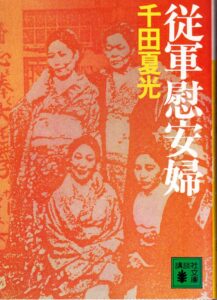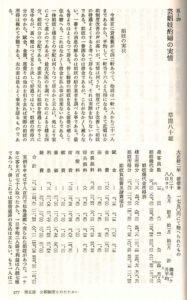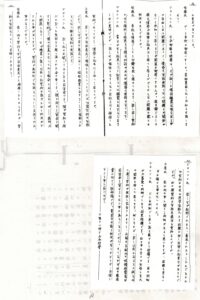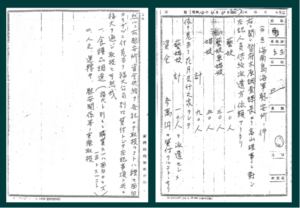People who try to justify the existence of the Japanese military “comfort women” system problematize the system only to the extent that violence or coercion against was used. They say that because the fact of violence can’t be proven through documents, this violence and coercion didn’t exist, and there was therefore nothing wrong with the Japanese military “comfort women” system.
Is it a right way of discussing this issue? A little thought tell us that it this is an exercise in ignorance and serves to distract people from the real issues.
When the issue of the Japanese military “comfort women” began to appear, some people emphasized the fact of forced prostitution to attract public attention to the issue. However, as the Japanese military’s and government’s documents and material were disclosed one after another and testimonies from former “comfort women” were given, researchers and citizens dealing with this issue clearly realized at an early stage that whether violence was used to take the women wasn’t necessarily the major point.
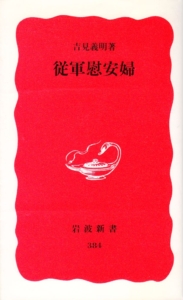
Yoshimi Yoshiaki, “Comfort women” (Iwanami Shinsho, April, 1995)
For example, in Comfort women (Iwanami Shinsho, April, 1995) published in 1995 by Yoshimi Yoshiaki, a leading researcher on this issue, “comfort women” are defined as “the women who were under the control of the military, imprisoned for a certain period of time without any rights and forced to provide sex to the soldiers, the people who fell into circumstances of “military sexual slavery” (p11).
In a conclusion part of this book, “What is the true nature of the issue of comfort women”, it is summarized as follows (p231-233):
First, “it was systematized violence against women in that the military continuously imprisoned women and military personnel raped them in turn without realizing what they were doing was a grave human rights violations against women”.
Second, “it was racial and ethnic discrimination”.
Third, “it was economic hierarchical discrimination”.
Fourth, “it was a violation of international law and a war crime”.
It is also clearly pointed out here that the major point is not the fact that coercion was used to take the women but the fact that women were arrested, imprisoned and under circumstances of sexual slavery after being taken to the military comfort stations―whatever the way they were taken.
It is made clear that not only violence was involved in recruitment but also fraud, flattery or trafficking in persons, which were crimes even at that time.
This understanding is held by researchers throughout the world. For example, introducing an American’s opinion at a history symposium in 2007, ex-diplomat Togo Kazuhiko says as follows:
“Discussion as to whether there was “forced prostitution” or not made by the Japanese has nothing to do with the true nature of this issue. It isn’t an issue that is the focus of attention in general in the world. With regard to the issues of sex, gender and women’s rights, American’s view is completely different from before. When they hear the story of “comfort women”, the only thing they think is “how would I think if my daughter were made to be a “comfort women”?” And they are horrified. This is the true nature of the issue. Much more, if “comfort women” were taken merely by means of flattery, or deception, they are nothing but crimes. Are there any differences between “forced prostitution” and “deception by flattery and manipulation that makes them unaware of what they are getting into”? If a nation justifies such a system, saying “it was unavoidable at that time”, it is a denier of women’s rights and can’t be recognized at all as an ally.”(“Sekai” December, 2012)
Moreover, Michael Green, senior director for Asian affairs at the National Security Council when Bush took office, says as follows:
“Lawmakers in Nagatacho forget the following thing. It doesn’t matter whether the women made to be “comfort women” were coerced or not. Nobody pays attention to the point except Japan. What matters is that “comfort women” led lives of misery.”(“Asahi Newspaper” March 10th, 2007)
When a kidnapping incident occurs, it doesn’t matter whether violence or deception was used to take the victim. As long as the victim is arrested and imprisoned, nobody pays attention to the way the victim was taken at first. In both ways, responsibilities for the crime are the same. If you will say since they were taken by means of merely deception, there was nothing wrong, everybody will boo you, saying what a foolish thing to say.
The crucial point is the fact that the women were imprisoned in comfort stations and coerced to “provide sex” and state organs established, operated and officially accepted such a system and enlisted the women.
(2014年10月24日更新)

